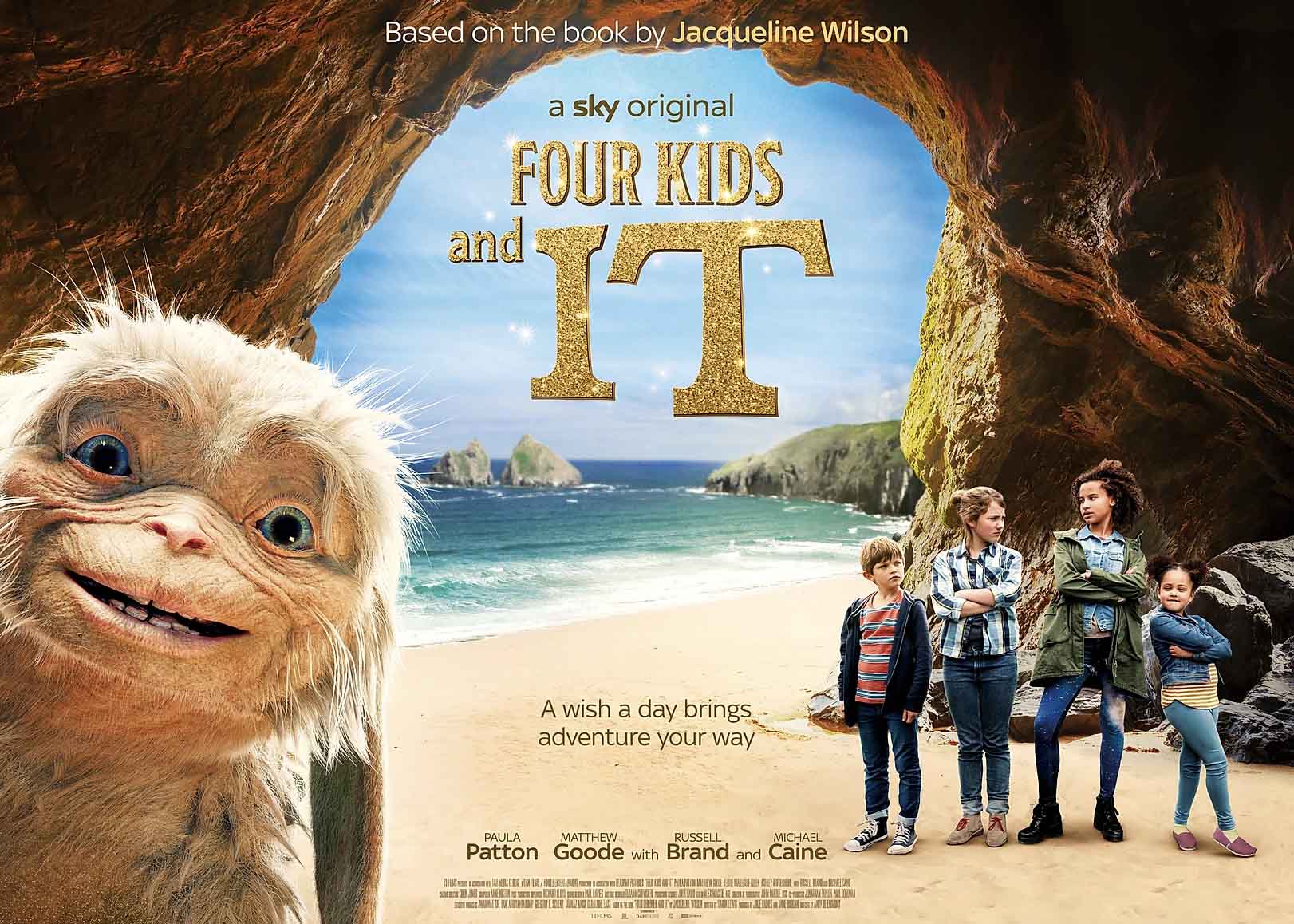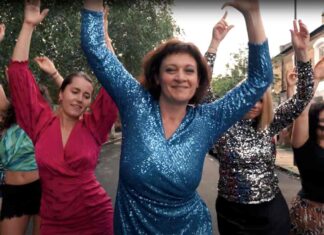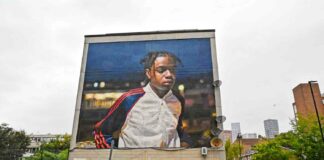Jessica Dyer catches up with local writer Simon Lewis during lockdown to hear about the new film he has written, what it’s like working from the confines of home and how Brixton has inspired his subject matter.

Simon Lewis started his writing career as a guidebook researcher in China and India, before becoming a novelist and screenwriter. He has published three novels (travel and crime thrillers) and written screenplays for film and television.
 Simon’s latest work is the screenplay for sky original film Four Kids and It. The family film is based on a Jacqueline Wilson novel, about a group of kids on holiday in Cornwall who meet a magical creature on the beach with the power to grant wishes. Some readers may recognise the familiar title as the story is a modern retelling of Five Children and It by E E Nesbit.
Simon’s latest work is the screenplay for sky original film Four Kids and It. The family film is based on a Jacqueline Wilson novel, about a group of kids on holiday in Cornwall who meet a magical creature on the beach with the power to grant wishes. Some readers may recognise the familiar title as the story is a modern retelling of Five Children and It by E E Nesbit.
What are you working on at the moment during lockdown?
I am finishing off a novel about a Chinese detective, and writing a film script about Eastern European dissidents in the 80s. I am waiting to hear news of a TV project about 90s rave culture in Manchester. Normally I write in cafes around Brixton and Camberwell, but I can’t do that now so I mostly write in bed.
What inspires your work?
I wrote guidebooks to China for years, and that kind of writing is about trying to communicate enthusiasm, to educate and elucidate. And fiction is not so different in a way: you want people to see. But a story for me always begins with an idea of a character, and a problem that they need to resolve. The characters are not like me – I think writers should pick characters who are quite different to themselves, and then work hard to imaginatively inhabit them – but the issues that they have are ones that resonate personally.
Do you have a process you follow when writing your novels?
First of all I write a simple draft like a screenplay, just dialogue and action, and that gives me the bare bones of the story, a sense of what the themes and characters are. Then I rewrite a lot, it’s all about finessing and honing and ruthlessly cutting every dud note. I lose count of how many drafts I go through. It’s all about rewriting really.
What is Four Kids and It about? What inspired you to write this screenplay adapted from the Jacqueline Wilson book?
It’s about a naughty creature, the Psammead (in the film, voiced by Michael Caine) who gives wishes to children. But the wishes only last a day and they always create chaos. The kids who find the creature are new step-siblings who don’t like each other much. But as they make wishes and go on adventures they bond and learn to be a family.
It’s an updating of an Edwardian story, Five Children and It by E E Nesbit. The producers had read a thriller that I had written and thought I had a good handle on plot so they brought me this charming, whimsical book and said, this is great but it’s quite episodic, how would it work as a film? One of the things I did was add an antagonist (played by Russell Brand) trying to steal the creature. A bit of jeopardy always helps keeps things moving forward.
What I love about our retelling is that it combines whimsical fairy tale elements with a sense of the reality of modern life. It’s meant to be positive and enriching and I’m pleased to say it seems to have succeeded. It wasn’t made for much, but in viewing figures it’s beaten Hollywood cartoons with much bigger budgets, and it has been sold all over the world.
What is your favourite part of Brixton?
I have lived just off Coldharbour Lane for nearly thirty years, first in a squat then on the Loughborough Estate, where I still am. So for better or worse that strip is a huge of my life. Loughborough Junction is no one’s idea of glamour but I like my estate. Everyone knows each other, which I think is quite unusual in London: and neighbourliness is much appreciated in lockdown. I’m on the top of my block so I have a breathtaking view. There is a fervent of activity in the arches around: lots of artist studios, small breweries and so on.
I enjoy hanging out the top end of the road best: I’ve watched an awful lot of films at the Ritzy, and wrote a lot in their cafe; have read a lot of great books bought cheap from Bookmongers; and in my much younger days had some great nights in 414 and the Dogstar.
How has Brixton influenced you and your work over the last 20 years?
I have written a lot about globalisation, culture clash, and the trials of urban life, and I pick characters from all kinds of backgrounds. I guess those are not the themes that would have attracted me if I’d stayed in Wales.

















